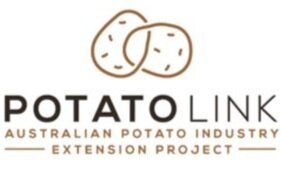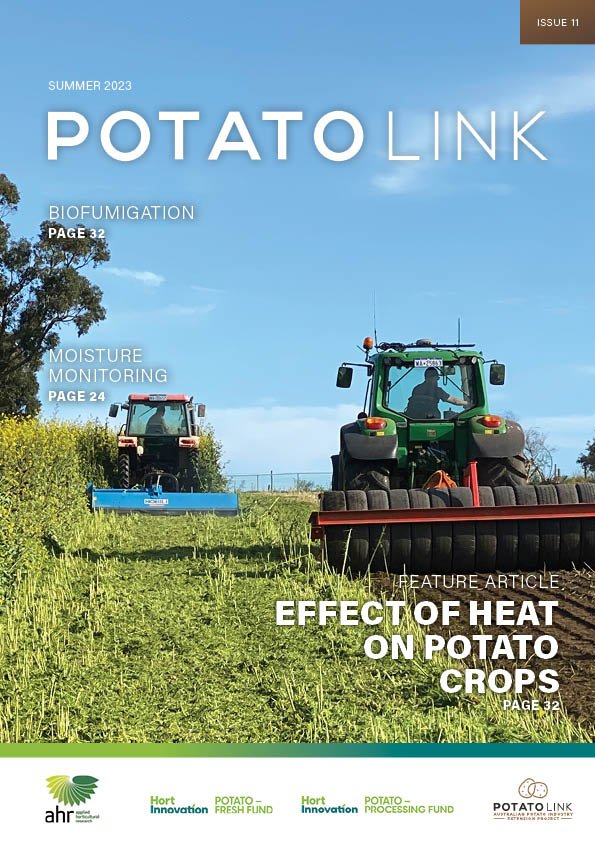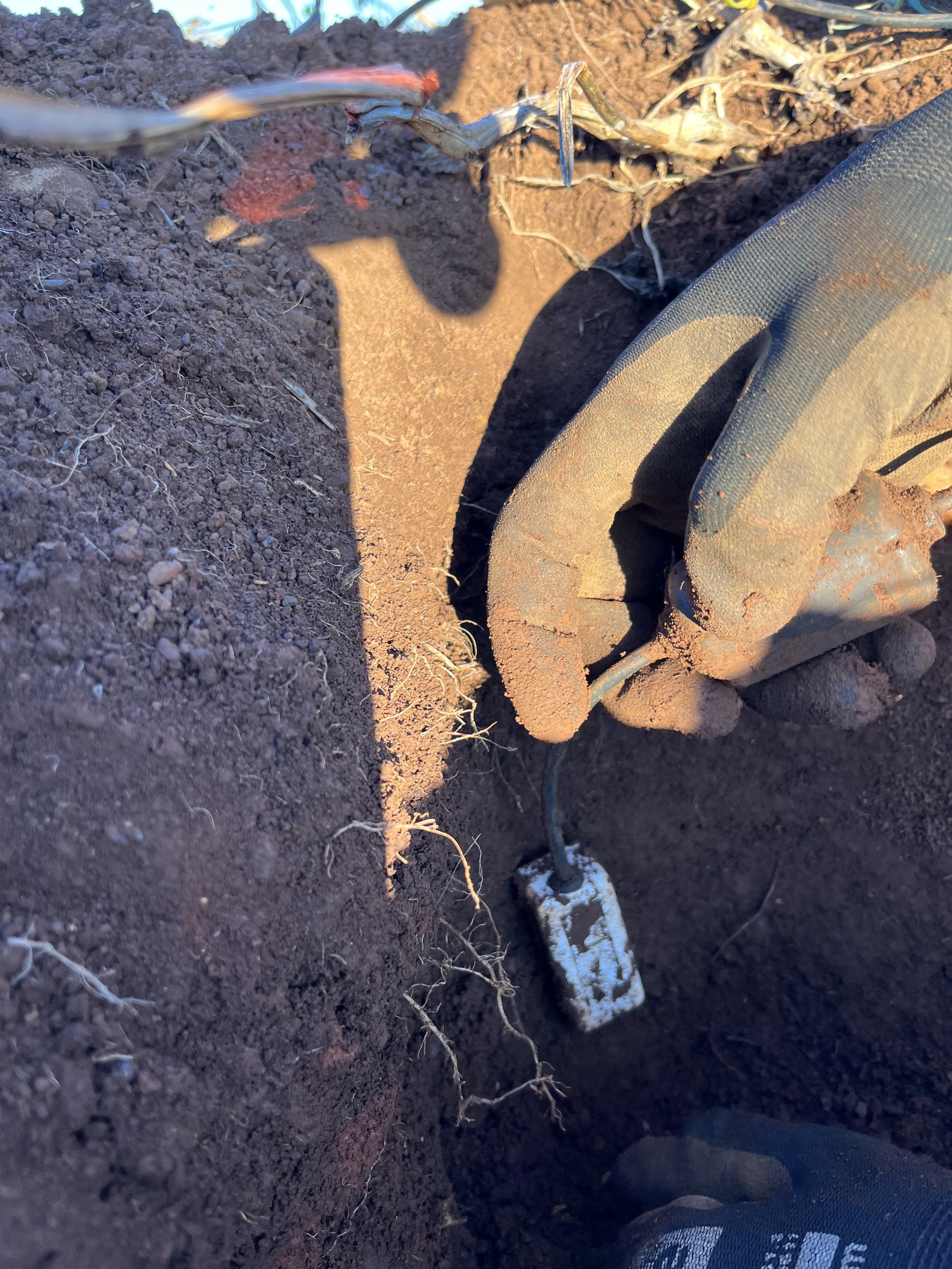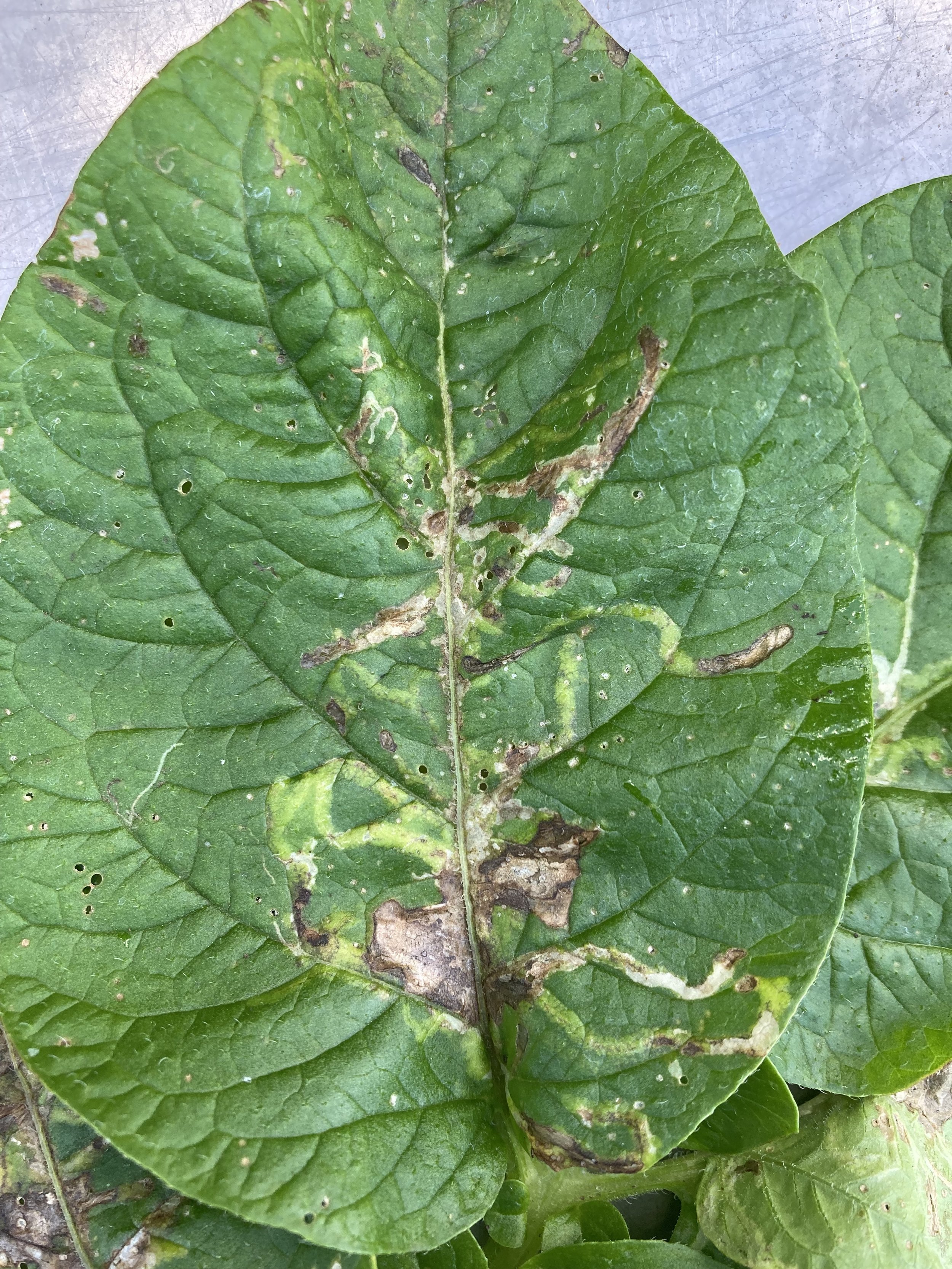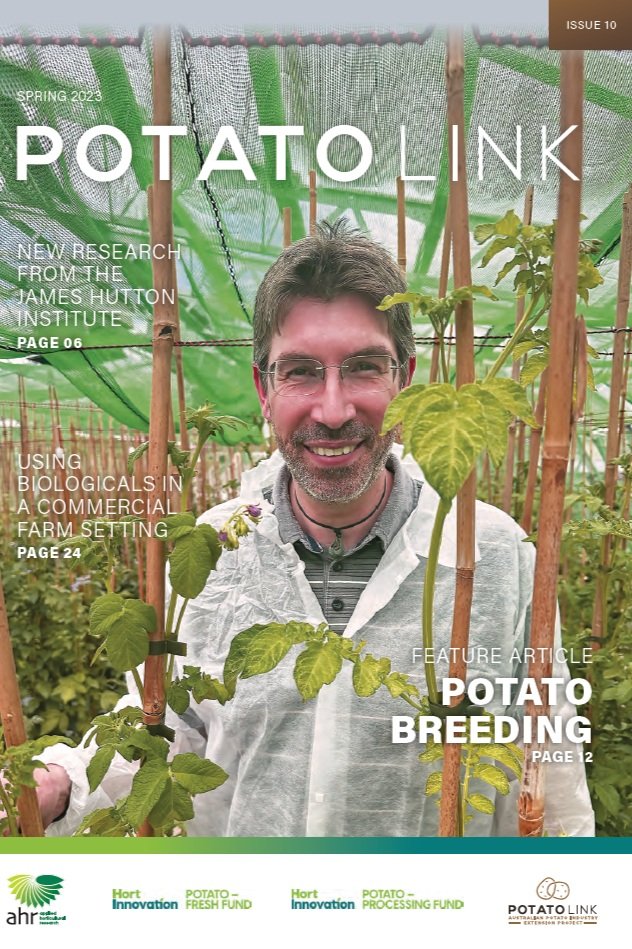PotatoLink Bulletin February 2024
New podcast episode, upcoming events in QLD, Vic and WA, potato bruising and management resources, Hort Connections 2024 and much more.
PotatoLink Podcast Episode 6: Getting the most out of mycorrhizae: 2023 biological product demonstration at Springbank, Vic
Join PotatoLink team members Stephanie Tabone and Kelvin Montagu as they discuss the results of the demonstration and how to get the most out of your mycorrhizal product.
PotatoLink Bulletin January 2024
New issue of the PotatoLink magazine, upcoming events in Vic and WA, demo site news, International Day of Potato, and much more.
Moisture monitoring – A PotatoLink demonstration
Beyond providing soil moisture data at a given time and soil depth, can soil moisture probes help in making future irrigation decisions? The potential of moisture probes to serve a dual role was the subject of a PotatoLink demonstration trial are discussed in this PotatoLink magazine article.
Mini guide – selected warm weather pests and diseases
During the Australian summer, potatoes are susceptible to various pests and diseases that can thrive in the warm and humid conditions. Get the mini guide in this PotatoLink Magazine article.
Controlling soilborne diseases and pest with biofumigants
The soil ecosystem directly impacts crop yield and quality. In recent years, there has been growing interest in sustainable farming practices that improve soil's biological, chemical and physical characteristics. Biofumigation is one of these sustainable practices discussed in this PotatoLink magazine article.
Management of recently established leafminers
Three new species of Lyriomyza leafminer flies are now present in Australia including, American Serpentine Leafminer (ASLM (Liriomyza trifolii)), Serpentine Leafminer (SLM (Liriomyza huidobrensis)), and Vegetable Leafminer (VLM (Liriomyza sativae)). Read more in this PotatoLink magazine article by Shakira Johnson, AUSVEG.
Effect of heat on potatoes
What happens when climate change impacts one of the world’s most important foods? With a burgeoning global population, food security is one of the most complex problems of our time, and our rapidly warming planet complicates the problem further. Read more in this PotatoLink magazine article.
PotatoLink Bulletin December 2023
Biological product demonstration site results, new portal to support growers through dry times, save the date: WA seed potato growers workshop, and much more.
PotatoLink Bulletin November 2023
New issue of the PotatoLink magazine, webinar: setting up for summer – preparation for potato growers, WPC 2024 speaker: IPM in potato production with Paul Horne, and much more.
PotatoLink demonstration: Using biologicals in a commercial farm setting
A recent PotatoLink demonstration trial at Springbank, Vic, investigated the impact of farm practices on the effectiveness of biologicals, including the application of fungicides, the influence of soil nutrient availability, and fertiliser applications. In Issue 10 of PotatoLink magazine you will find all the details of the trial as well as the results.
A new potato virus vector monitoring program
Australian Seed Potato Industry Certification Authority (AuSPICA) has introduced an innovative solution to monitor insect vectors in potato crops. Passive suction traps installed in the field take samples of potential virus vectors, which are then sent to Intertek laboratories for rapid DNA analysis. The data developed builds information on the presence of potato virus vectors during the growing season and in the long term, builds trends on vector populations in potato growing regions.
Read the full story in Issue 10 of PotatoLink magazine.
PotatoLink Bulletin October 2023
Podcast: Potato genetics at the James Hutton Institute, Hort Innovation webinars, BOM long-range forecast, and much more.
PotatoLink Podcast Episode 5: Potato genetics at the James Hutton Institute
Doctors Ingo Hein, Sanjeev Sharma and Xinwei Chen talk to PotatoLink about their research, and the exciting new world of advanced potato breeding.
